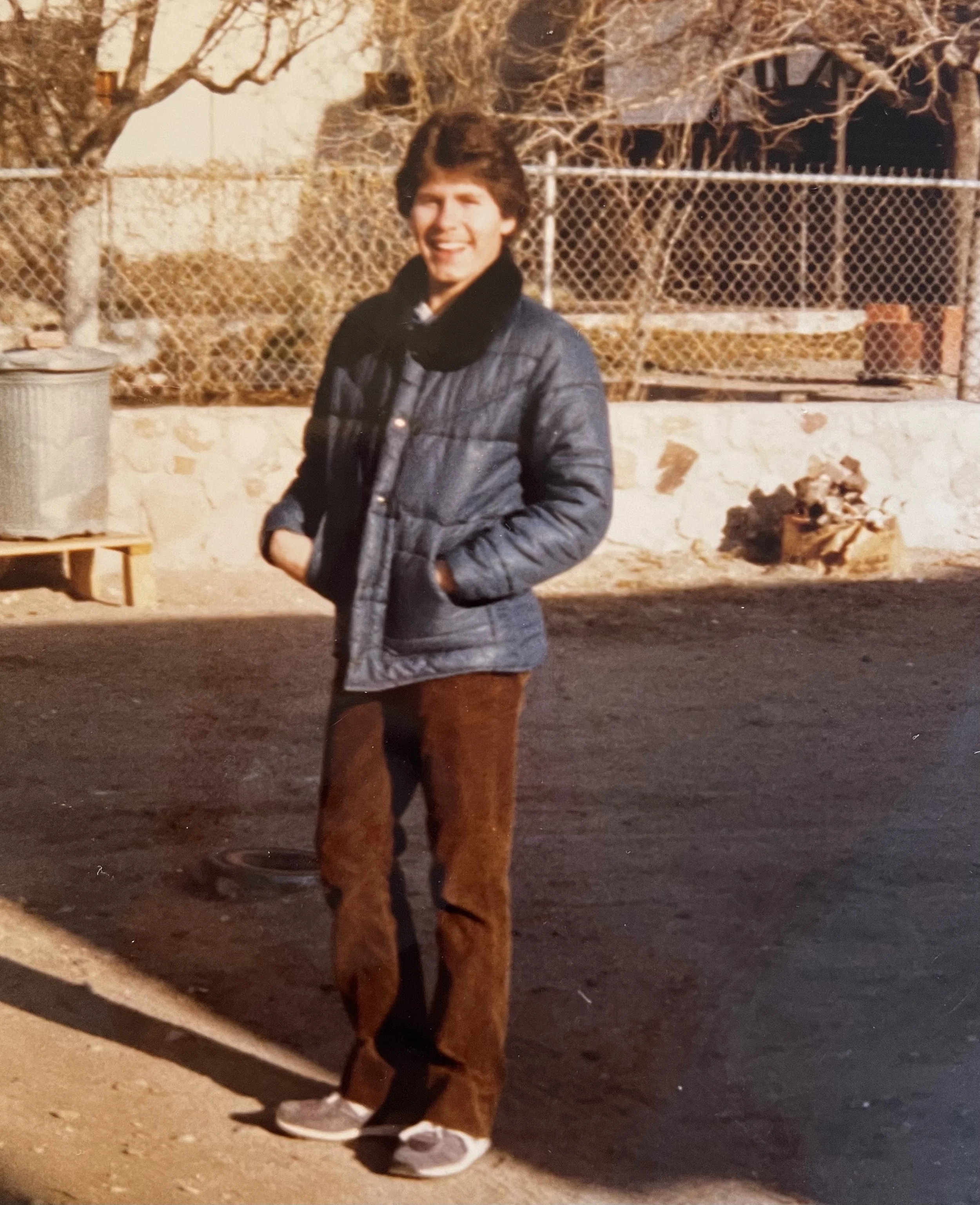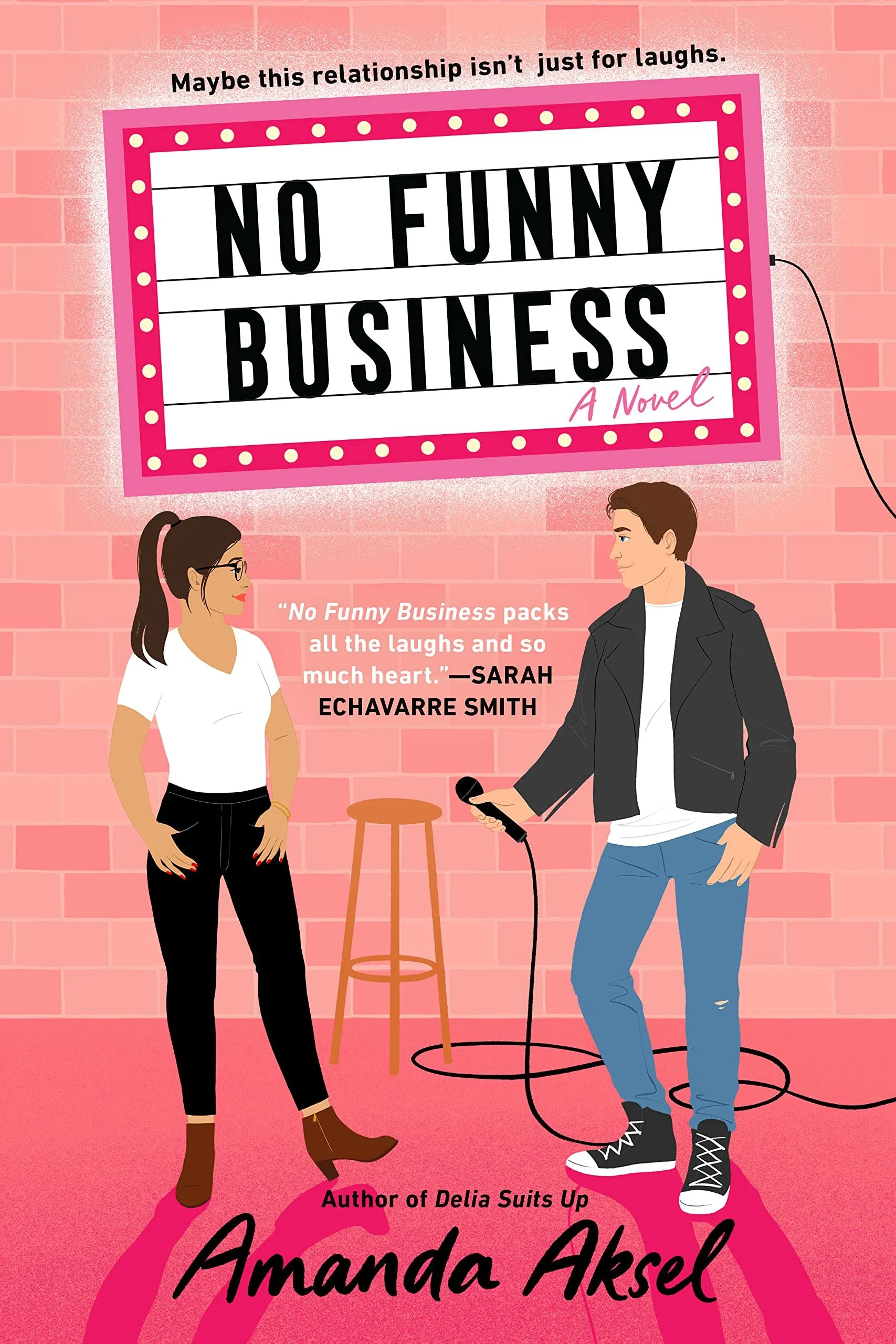How An Old Photo Of My Late Father Got The Book Started
How An Old Photo Of My Late Father Got The Book Started: A Guest Post by Amanda Aksel
I never set out to write a story about stand-up comedians. And I definitely never intended to connect with my deceased dad as if using some literary Ouija board. But I did, and here’s how it happened . . .
My last release, DELIA SUITS UP, is inherently a comedy. So my editor suggested I write a story that centered in the comedy world of stand-up. I’ve been a huge fan of stand-up since childhood when I would listen to comedy albums on vinyl with my dad. Since I love comedy and I’m a professional, I said yes. Meanwhile, I didn’t have a clue what to write.
After several iterations of an idea, I settled on a quirky female stand-up who ventures on a cross country adventure with a road companion who spices things up. From the beginning, I knew I wanted to somehow honor the man who instilled in me a love of comedy. So I bestowed my father’s name upon the story’s protagonist, and she became Olivia Vincent. I also wanted to honor my favorite stand-up, Chris Rock, in a small way. So I placed Olivia and her road buddy, Nick in a Nissan Altima since the comedian declared himself an “Altima man” in MTV’s Diary of Chris Rock (If you’re an older millennial, you might remember that show). Now I had a premise, a character with a cool name, and a car. How hard could it be to tell a fun, lighthearted story about two comedians on tour like a modern-day Mrs. Maisel and Lenny Bruce?
The answer?
Really freaking difficult.
With the pandemic in full swing and battling what I didn’t know at the time was long COVID, I struggled to work effectively and fell into a deep depression. Since I’d already been paid for the book, I trudged through as the pressure mounted but there was nothing comical about it. How could I write a hysterically funny book when I could no longer see the humor in life?
How An Old Photo Of My Late Father Got The Book Started: A Guest Post by Amanda Aksel
I began writing the story of a young millennial stand-up working to redefine the American Dream for herself in a post 9/11, post everything on social media society, all while traveling three-thousand miles across the United States. By the end of it, the draft seemed to only highlight my depression and fell as flat as Charlie Chaplin slipping on a banana peel. I was stuck—like running out of gas on the side of a desert highway with no cell service.
Then I remembered a quote from my mentor, Daisaku Ikeda who said, “Those who have suffered the most will become the happiest." That small encouragement was like the ray of hope a single headlight provides in the dark. I knew that through writing this book I’d have to turn my suffering into joy, and change the poison in my life into medicine for myself and perhaps my readers too. After this realization, it only felt appropriate that Olivia Vincent undergo a similar process in the pursuit of making people laugh. After all, don’t the best comedians take their pain and play with it for those beloved ha-ha-has?
I kept coming back to the memory of listening to stand-up on vinyl with my dad, how much we loved to laugh and tell each other silly jokes. The funny thing about losing a parent when you’re young is being left with unanswered questions about them. I wondered how my dad came to love stand-up. I wondered a lot of things. So I pulled out a tattered old photo album with snapshots of my parents from the early eighties. Who knows how many times I’ve flipped through its worn pages over the years. There’s this one photo of my dad’s smiling with the sun on his face, feathery dark hair, John Travolta style dimple in his chin, and wearing a pair of brown corduroy bellbottoms.
I really didn’t think my dad would have any more influence in my story than Olivia’s last name. But when I went back to the drawing board to revamp the dead story, I found myself projecting pieces of my experience with my dad onto Olivia. As if a female stand-up doesn’t have enough to deal with. Since many comedians come from painful pasts, the backstory I stitched together for her made sense. Olivia ran away from her hometown in Texas to New York City in order to escape the grief of her father’s untimely death and pursue stand-up. It was a simple sob-story that would only serve as motivation for the character and wouldn’t get a lot of attention throughout the book. I tried to continue but I stalled again, like I was learning to drive a stick shift for the first time. I wanted to abandon the project but I couldn’t. I was just months away from my deadline.
So I went back to the beginning to make some much needed edits, praying it would somehow come together. I was revamping one of the early scenes when Olivia reveals the only memento she brought from Texas—her dad’s favorite comedy album. In order to show the audience it belonged to him, I planned on her pulling out a photo of her and her dad from inside the vinyl sleeve. As my fingertips tapped away on the keyboard, I felt a rush of inspiration when she reached inside the album. It wasn’t a photo of Olivia and her dad. Instead, it was a photo of him, smiling with a spotlight on his face, feathery dark hair, and brown corduroy pants from the Vinnie Barbarino collection, holding a mic on stage at a comedy club sometime in the early eighties. I gasped at the discovery! Holy crap! There’s so much more to this story, I thought. Olivia felt much the same when she discovered the lost photograph hidden in the comedy album the night of her father’s funeral. This was the catalyst the spurred her to New York City, and the mystery that haunted her.
This little change, this photo of Olivia’s deceased dad brought the whole story to life for me, and I was grateful for the muse’s whispers about the photo. As the story went on, there were more whispers like—put them in a Jeep instead of an Altima. Why a Jeep? Because one thing my dad loved more than his records was his ’81 Jeep Renegade. It was his totem. Good idea, muse! These instances continued to occur, many times evoking a memory I’d forgotten of my dad. I soon came to understand that this “muse” wasn’t just some abstract source of inspiration, it was my dad reminding me of the joy, laughter, and great stories we shared together. The more I was quiet and listened, the easier the story was to write. As my deadline approached, I was able to see a specialist for my health challenges and within weeks my depression disappeared and has not returned since. Turns out I was simply vitamin deficient.
Truth be told, I was terrified when I turned in my draft but there was this deeper part of me that was confident I shifted something in my life through the process, changed poison into medicine and found joy amidst the suffering. Not only did I take my pain and play with it for the sake of my story, I learned that the bonds we share with our loved ones can’t be severed by space, time, or death. Our relationships endure and take a new form. And while our loved ones’ presence isn’t tangible, it doesn’t make it any less real. I hope as Olivia’s story continues past the final page of NO FUNNY BUSINESS, her relationship with her father lives on too.
How An Old Photo Of My Late Father Got The Book Started: A Guest Post by Amanda Aksel






